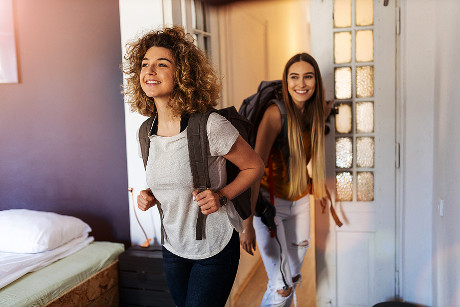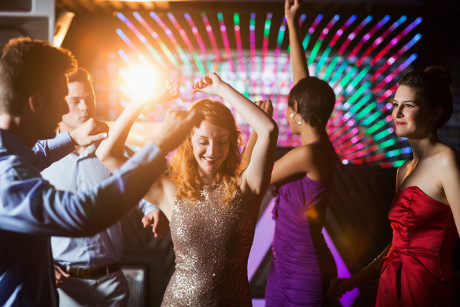Welcome to your travel guide and tourist information about short trips and city breaks in Vienna, Austria: www.viennahipsterguide.com
Vienna on a Budget: Tips on How to Have a Cheap Vacation and Trip to Vienna, Austria?
Vienna, Austria’s elegant capital, is a city steeped in culture, history, and classical charm, but that doesn’t mean it has to be expensive to enjoy. With the right strategies, travelers can explore this world-class destination without overspending. From affordable transportation options and budget accommodations to free attractions and discounted events, Vienna offers plenty of ways to stretch your travel funds. Whether you’re a solo backpacker, a student, or a family looking to explore Europe economically, this guide will help you uncover how to experience Vienna richly, without breaking the bank.

1. How to save money on getting to Vienna by plane, train or bus?
Traveling to Vienna on a budget can be done by utilizing a few practical strategies. When flying, one of the most cost-effective ways is to book flights well in advance and look for deals on budget airlines like Ryanair, EasyJet, or Wizz Air. Flying during off-peak seasons (such as mid-week or in the shoulder seasons) can also reduce costs. If you are traveling from nearby countries, consider taking a bus or train. The train network in Europe is extensive, and tickets can be cheap if booked early or if you use rail passes like the Eurail pass. Buses, like those offered by FlixBus or RegioJet, provide a very affordable alternative to trains and planes, though they may take longer. For travelers already in Europe, using buses or trains can save money compared to flying. Additionally, Vienna has excellent connections to other major cities, and often, buses or trains are more convenient and direct than flying.
2. What are common ways to save money on accommodation when staying in the city?
Vienna offers a variety of affordable accommodation options for budget-conscious travelers. Hostels are a great starting point, with several in the city offering both dormitory and private rooms at reasonable prices. Websites like Hostelworld or Booking.com help you compare prices and find the best deals. Another budget-friendly option is to rent an apartment or private room through platforms like Airbnb, often allowing you to save on accommodation while having access to kitchen facilities, which can help cut down food expenses. For an even cheaper alternative, look into staying in university dormitories during the summer when students are away. Many hotels also offer discounts if you book directly, and some provide free breakfast or other perks that can help you save. Lastly, consider staying in the suburbs or neighborhoods slightly outside of the city center, as they are generally more affordable, and public transport connections make it easy to reach the main attractions.
3. How to save money when getting around in Vienna and using public transport?
Vienna has an excellent public transportation system, and there are several ways to save money while getting around. The Vienna Card is a popular option, offering unlimited travel on public transport (trams, buses, metro) for 24, 48, or 72 hours, along with discounts at many attractions. For a more economical choice, consider the weekly or monthly travel passes, which offer unlimited travel within the city at a lower cost if you're staying for a longer period. If you’re staying for just a short trip, individual tickets are available, and a multiple-ride pass will save you money if you plan on using public transport frequently. For tourists who enjoy walking or cycling, Vienna is a very pedestrian-friendly city, and many of the major attractions are within walking distance of each other. Also, the city has a bike-sharing program called Citybike, which is free for the first hour, helping you save money while exploring.
4. What are common ways to save money when visiting museums, historic sights, tourist attractions in the city?
Vienna is a city rich in history and culture, and there are several ways to save money on tickets to museums and attractions. Many museums offer reduced or free entry on certain days of the month, such as the first Sunday of the month, when entry to places like the Belvedere or the Kunsthistorisches Museum is free or discounted. Additionally, there are combination passes like the Vienna Pass or the MuseumsQuartier ticket, which allow visitors to access multiple attractions for a discounted price. If you're interested in a specific museum or attraction, check if they offer free admission days or discounted tickets for students, seniors, or groups. Some attractions, like St. Stephen's Cathedral, are free to enter, though a donation is appreciated. The Albertina Museum, for instance, offers free admission on certain days or times, making it easier to enjoy world-class art without breaking the bank. Lastly, many city tours, including walking tours, offer affordable packages and can be a great way to see multiple sights at once.
5. What main tourist attractions can be visited for free
Vienna offers several major attractions that are free to visit, making it a great destination for budget travelers. St. Stephen’s Cathedral is one of the city’s most iconic landmarks and free to enter, though there is a fee if you want to climb the tower or visit the treasury. The Prater park is another highlight, where visitors can enjoy wide open spaces, take a walk, or cycle around without any cost, though the famous Giant Ferris Wheel has an entrance fee. The Stadtpark (City Park) is a lovely place for a stroll and is home to the famous statue of Johann Strauss. For art lovers, the MuseumsQuartier offers a mix of free exhibitions and outdoor spaces where you can enjoy the architecture and art for free. The Hofburg Palace, while the interior requires a ticket, allows visitors to explore its beautiful gardens and courtyards at no cost. Lastly, the Naschmarkt, Vienna's famous outdoor market, is free to walk through and offers an excellent experience even if you don't buy anything.
6. What main events can be visited for free
Vienna is a cultural hub, and throughout the year, there are various events that visitors can attend for free. During the summer months, the city hosts open-air concerts, festivals, and film screenings. The "Donauinselfest" (Danube Island Festival) is one of the largest free festivals in Europe, featuring live music, food, and activities on Danube Island. Additionally, the "Wiener Festwochen" (Vienna Festival) often includes free outdoor performances and concerts in public spaces. Another popular event is the "Filmnächte am Rathausplatz," a free outdoor film screening festival held in front of the Town Hall, offering a variety of movies in the summer. In the winter, Vienna transforms with Christmas markets, and while you may spend a little shopping, the festive atmosphere and performances are completely free to enjoy. Free public events, like exhibitions in public spaces or cultural performances in parks, are also common throughout the year.
7. How to buy food and eat in restaurants on a budget?
Vienna offers plenty of opportunities for budget-friendly dining. For an authentic and inexpensive meal, look for Wiener Beisls or local taverns, which often serve traditional Austrian food at a lower price than more touristy restaurants. Street food is another great option, with stands selling sausages, pretzels, and schnitzels at affordable prices, especially near popular attractions. The Naschmarkt is a great place to grab a quick bite, as it has food stalls offering everything from local to international dishes at reasonable prices. If you prefer self-catering, buying groceries at supermarkets like Billa or Hofer and cooking in your accommodation can save you a lot of money. Additionally, for breakfast or lunch, local bakeries offer affordable pastries, sandwiches, and coffee, allowing you to enjoy the Viennese café culture without the higher prices. Finally, look out for special lunch menus at restaurants, as many offer discounted meals during midday hours.
8. What are common ways to save money on buying souvenirs and shopping in Vienna?
Souvenir shopping in Vienna doesn’t have to break the bank. Rather than buying overpriced items from touristy spots around landmarks, consider visiting local markets like Naschmarkt, where you can find unique handcrafted items, local foods, and much more at lower prices. Shops outside of the city center often offer better deals than those in prime tourist locations. You can also head to second-hand shops or flea markets, such as the "Flohmarkt" at the Karmelitermarkt, where you can find vintage items and unique treasures at a fraction of the cost. Additionally, consider purchasing smaller, locally made souvenirs, like Austrian chocolates, handmade crafts, or postcards, which are often cheaper and make for great gifts. For clothing and general shopping, outlets and chain stores like H&M and Zara offer affordable options. Lastly, be on the lookout for sales, particularly during the summer and winter seasons when many stores have significant discounts.
Getting the most out of your stay in Vienna
Traveling to Vienna on a budget is not only possible, but it can also be incredibly rewarding. With so many free attractions, public events, and low-cost dining and accommodation options, the city proves that luxury and affordability can go hand in hand. By planning ahead and taking advantage of local tips, you can immerse yourself in Vienna’s art, architecture, and culinary delights while keeping your expenses low. No matter your budget, Vienna invites you to explore its charm, culture, and vibrancy without compromising on experience.









